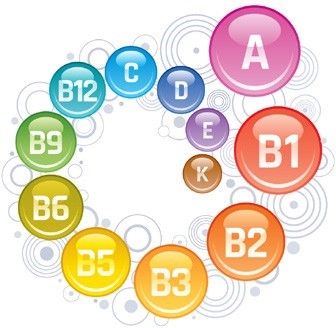Recommended Daily Allowance
- The Recommended Daily Allowance (RDA) for nutrients set by the government are based on scientific published research are given to the general public to meet the requirement of the average person
- Macronutrient recommendations in Ireland and the UK:
Food Pyramid
The Eatwell Guide and Food Pyramid are based off the RDA’s set in Ireland and UK.
GUIDELINES
- The Eatwell and Food Pyramid Have Associated Guidelines;
- Fruit & vegetable intake is set at a minimum of 5 servings per day
- Meals should be based primarily on starchy carbohydrates and accompanied by some pulses, eggs, poultry, meat or other protein sources
- Include two portions of fish every week, one of which should be oily
- Low fat and low sugar options of dairy are specified over higher fat and sugar options,
- Minimal inclusion of saturated fats
- Small amounts of high fat, high sugar snack foods are include
RDA Provides a Reference Value Sufficient to Meet the Needs of 97%-98% of the Average Population:
- This May Not Be Optimal For:
- Elderly
- Young
- Fat Loss
- Highly Active
- Pregnancy
- Clinical Populations
Alcohol Considerations
- 1g of Alcohol = 7 Kcal
- Men and Women are Advised Not to Drink More Than 14 Units of Alcohol Per Week
- Low Calorie Alternative Can Significantly Reduce Calorie Intake From Alcohol
- Low Calorie Alcohol Alternatives:
NUTRITION PRINCIPLES TO SUPPORT HEALTHY EATING
- Essential Nutrients Needed in Small Amounts:
- Enzyme co-factors
- Antioxidants
- Pro-hormone
- Provide No Energy
- The Requirements For Various Vitamins & Minerals Change Across the Stages of Life
- Vitamins are Naturally Occurring, Organic Chemicals that are Essential for All Chemical Reactions Within the Body
- There are Two Types of Vitamins:
- Water Soluble
- Fat Soluble
Fat Soluble Vitamins
- Vitamin A, D, E, K
- Daily Consumption Not Essential, but Overall Adequacy is Important
- Can Be Stored and Can Become Toxic
Water Soluble Vitamins
- Vitamin B & C
- Not Stored
- Excess Excreted in Urine
- Daily Consumption Required More Frequently
Minerals
- Essential for All Chemical Reactions within the Body
- Inorganic Chemicals Naturally Found in Foods
- Minerals include:
- Magnesium
- Zinc
- Calcium
- Iron
- Potassium
- Sodium
- Magnesium
- Copper
Free Radicals and Antioxidants
- Free Radicals are uncharged molecules that are highly reactive
- They are Produced in Daily Life
- Conditions such as illness and exercise can increase their production
- ‘Oxygen Free-Radicals’ are a By-Product of Aerobic Metabolism
- Can Damage Cells
- Antioxidants can ‘Neutralise’ Free Radicals
- Oxidative Stress occurs when Free Radicals > Antioxidants
- Linked with an Increased Risk of Some Cancers
- Antioxidants are Components that Inhibit Oxidation
- Examples of Some Endogenous Antioxidants include;
- Superoxide Dismutase
- Alpha Lipoic Acid
- Coenzyme Q10
How do they Work?
- They form a first line of defence, preventing production of free radicals
- A second line of defence which scavenges free radicals
- A third line which involves the generation of new antioxidants
- Exogenous Antioxidants include vitamin A, C and E
Phytochemicals and Antioxidants
- Phytochemical are also a form of antioxidants and are chemical compounds found within plants
- Both endogenous and exogenous antioxidants are required to promote optimal balance with free radical production
- Exogenous antioxidants are found predominantly in fruit and vegetables
- Carotenoids are fat soluble phytochemicals that have strong antioxidant and other potential protective properties
- Flavonoids are water-soluble Both Carotenoids and Flavonoids are found in many fruit and vegetables
Antioxidants and Health
Free radicals contribute to chronic disease through their contribution to oxidative stress, which is implicated in the development of multiple chronic diseases such as cardiovascular disease, and other common diseases.
- The majority of research on supplementing antioxidants has been inconclusive
- Therefore the focus should be on a varied diet largely comprising of fruit, vegetables and wholegrain foods
Practical Recommendations
- Encourage wide variety of predominantly single ingredient foods
- Aim for a minimum of 5 portions fruit and vegetables per day
- Use the Eat Well Plate as guidance whilst knowing that this will not be optimal for some clients
Summary
- Use the Fat Well Plate as Guidance for Recommending a Healthy Diet
- Vitamins & Minerals are Essential in Small Amounts
- The Negative Effects of Free Radicals can be Minimised Through the Consumption of Diet High in Fruit, Vegetables & Wholegrains






